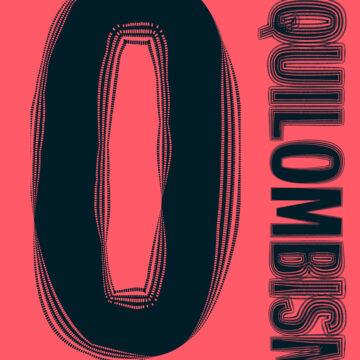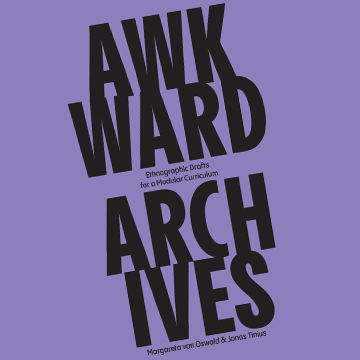By the Means at Hand offers a look into Vlatka Horvat’s eponymous project, presented at the Pavilion of Croatia at the 60th International Art Exhibition—La Biennale di Venezia in 2024. Horvat invited some 200 international artists – friends and friends of friends, all living “as foreigners” in different countries around the world – to exchange small-scale artworks with her, all made for the occasion. For every work she received, Vlatka sent to each artist a collage from the series she was making while in residence in Venice, using images of the city she has taken on her daily walks. All the artworks travelled to Venice and back via informal transport networks; in bags and suitcases of friends, acquaintances, and sometimes strangers enlisted as couriers for the project.
Tag: HKW
Beneath the Surface
In a world where noise and silence perpetuate cycles of oppression and ecological destruction, Beneath the Surface invites us to pause, listen deeply, and use our voices to reclaim buried stories.
Destination: Tashkent
Between 1968 and 1988, the Tashkent Festival of Asian, African, and — from 1976 onwards — Latin American Cinema was held in Tashkent, Uzbekistan.
Forgive Us Our Trespasses / Vergib uns unsere Schuld – Reader (EN)
The Forgive Us Our Trespasses / Vergib uns unsere Schuld Reader explores radical and emancipatory significations and fabulations of trespassing, turning towards practices that transgress and reshape the boundaries of, among other dimensions, currency, governance, religion, spirituality, language, and artificial intelligence.
Vergib uns unsere Schuld / Forgive Us Our Trespasses – Reader (DE)
The Forgive Us Our Trespasses / Vergib uns unsere Schuld Reader explores radical and emancipatory significations and fabulations of trespassing, turning towards practices that transgress and reshape the boundaries of, among other dimensions, currency, governance, religion, spirituality, language, and artificial intelligence.
Ballet der Massen. Über Fußball und Katharsis / BOM Magazine
Das BOM Magazin, die Publikation zum Projekt Ballett der Massen am Haus der Kulturen der Welt (HKW), greift seltene Perspektiven auf Fußball als Spannungs- und Entspannungsfeld auf.
Ballet of the masses. On Football and Cartharsis / BOM Magazine
The BOM Magazine, the publication for the Ballet of the Masses project at Haus der Kulturen der Welt (HKW), focuses on rare perspectives on football as a field of both tension and relaxation.
Echoes of the Brother Countries Reader
The Echoes of the Brother Countries Reader embarks on a rigorous reappraisal of the historical exchanges between the German Democratic Republic (GDR) and its so-called Bruderländer (brother countries). Published on the occasion of the eponymous research and exhibition project at Haus der Kulturen der Welt (HKW), this reader considers the echo as a fulcrum to examine the resonant aesthetic, social, and political implications of an era from the perspectives of those who were deeply affected by the GDR’s state and labour policies, yet gravely overlooked in its histories.
Echos der Bruderländer Reader
Der Reader zum Projekt Echos der Bruderländer versucht eine Aufarbeitung des historischen Austauschs zwischen der Deutschen Demokratischen Republik (DDR) und ihren sogenannten ‚Bruderländern‘. Die Publikation, die anlässlich des gleichnamigen Forschungs- und Ausstellungsprojekts im Haus der Kulturen der Welt (HKW) erscheint, versteht den Begriff des Echos als Dreh- und Angelpunkt, um die ästhetischen, sozialen und politischen Implikationen einer Epoche aus der Perspektive derjenigen zu untersuchen, die von der Staats- und Arbeitspolitik der DDR zutiefst betroffen waren, aber in der Geschichte der DDR kaum wahrgenommen werden.
As though we hid the sun in a sea of stories / Als hätten wir die Sonne verscharrt im Meer der Geschichten
Accompanying the exhibition As Though We Hid the Sun in a Sea of Stories, this reader weaves together essays, conversations, and poetry that trace the multiplicity of worldviews, histories, and archives that have existed within an area of Central and Eastern Europe, Central and North Asia, and further beyond.
O Quilombismo Album
Beyond thinking with quilombismo as a metaphor, O Quilombismo: Of Resisting and Insisting. Of Flight as Fight. Of Other Democratic Egalitarian Political Philosophies. deliberated on the intellectual and political implications of a philosophy and ideology based on the quilombos, mapping the spaces that they have made and continue to make possible today. Featuring over 100 full colour images and installation views, the O Quilombismo Album is a visual record of these acts of opening again, a celebration of conviviality.
O Quilombismo Handbook
The O Quilombismo Handbook is an indispensable companion to the eponymous exhibition. It includes background information on and numerous images of all exhibited works, texts providing further insight into the practice of the participating artists, as well as floor plans and sketches of the exhibition spaces. Two introductory essays provide context for the philosophy of quilombismo and the conceptual framework of the exhibition.
O Quilombismo Handbuch
Das O Quilombismo Handbuch ist die unentbehrliche Begleitpublikation zur gleichnamigen Ausstellung. Darin finden sich Werkinformationen und Abbildungen aller gezeigten Arbeiten, vertiefende Informationen zu den beitragenden Künstler*innen sowie Lagepläne und Skizzen der Ausstellungsräume. Zwei einleitende Essays führen in die Philosophie des Quilombismo und das Konzept der Ausstellung ein.
O Quilombismo Reader (DE)
Der Reader zum Projekt O Quilombismo: Von Widerstand und Beharren. Von Flucht als Angriff. Von alternativen demokratisch-egalitären politischen Philosophien, wendet sich an Leser*innen mit Interesse an den konzeptionellen Hintergründen und den kuratorischen Linien der Ausstellung: Auflehnung, Befreiung, Spiritualität, Ekstase, neue kulturelle Formen und ästhetische Paradigmen, Interpretationen von Kollektivität und Quilombo als Queering.
O Quilombismo Reader (EN)
This reader, published on the occasion of the project O Quilombismo: Of Resisting and Insisting. Of Flight as Fight. Of Other Democratic Egalitarian Political Philosophies, brings the themes of the eponymous group exhibition to those interested in wider conceptual explorations around its multifaceted curatorial threads: insurgence, resistance, liberation, spirituality, ecstasy, new cultural forms and aesthetic paradigms, quilombo as queering, and the reimagination of collectivity.
Awkward Archives
Awkward Archives proposes a manual for academic teaching and learning contexts. An ethnographic research approach is confronted with the demands of archival research as both disciplines challenge their inner logics and epistemologies. Through fieldwork and ethnographic tools and methods, both analogue and digital, the editors take various contemporary archival sites in Berlin as case studies to elaborate on controversial concepts in Western thought. Presenting as such a modular curriculum on archives in their awkwardness—with the tensions, discomfort and antagonisms they pose.














